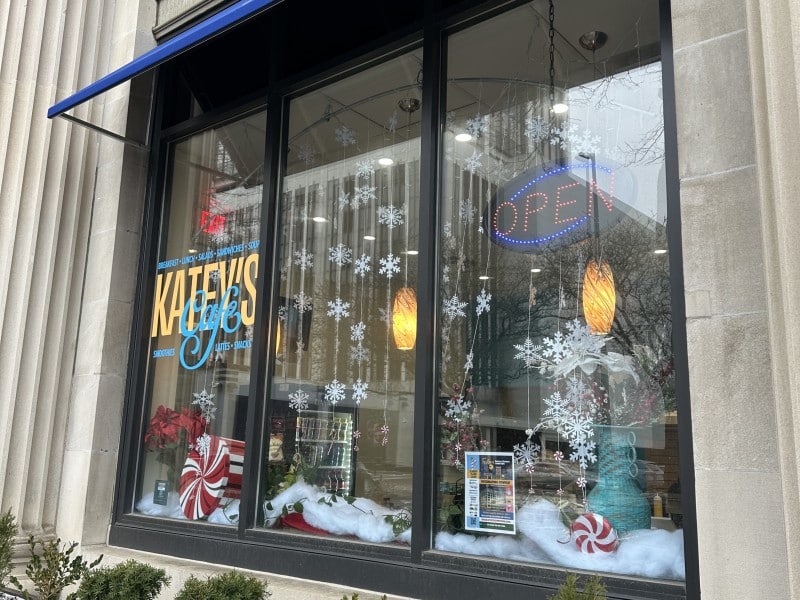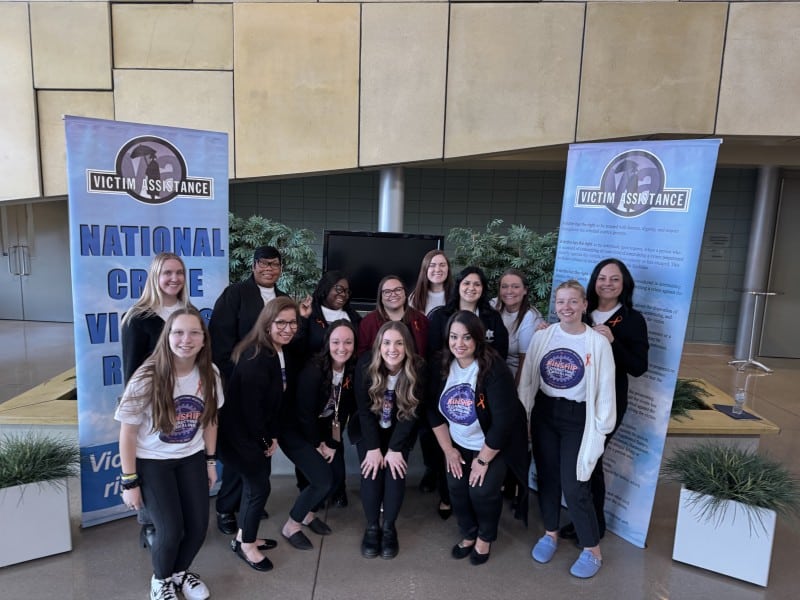When grandparents return to preschool: Generational connections and enhanced learning environments
“The children gravitate toward our grandparents. They look forward to seeing them in the classroom and spending time with them.”
Grandparents around Fort Wayne are going to school again — this time to support kids in the classroom through the Foster Grandparents Program.
The Foster Grandparent Program, created by AmeriCorps, started in Fort Wayne in 1965 and has been connected with Brightpoint Head Start schools for many years. Today, the program has 51 participating grandparents and 14 of those volunteers work in Head Start preschools around Fort Wayne.
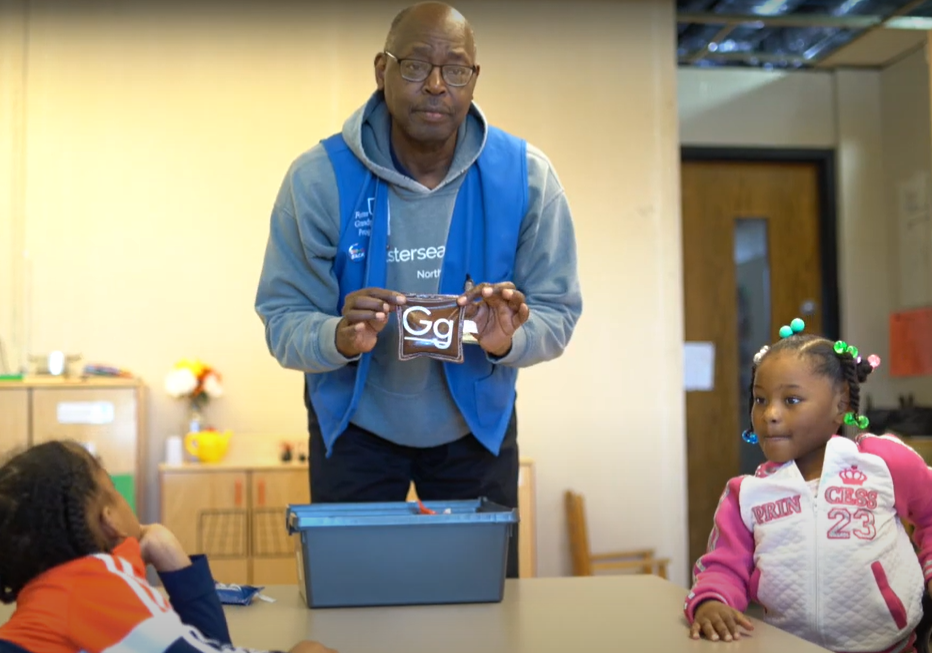
Head Start serves low-income and special needs preschool children and their families through comprehensive educational, health, nutritional, and other developmental social services.
Participants in the Foster Grandparents Program must be 55 or older and go through an interview process. Once approved, they begin with a five-day orientation which includes training on the program’s policies and procedures, education on child abuse and neglect, as well as appropriate activities for each age group. Brightpoint collaborates with the Foster Grandparents on this training.
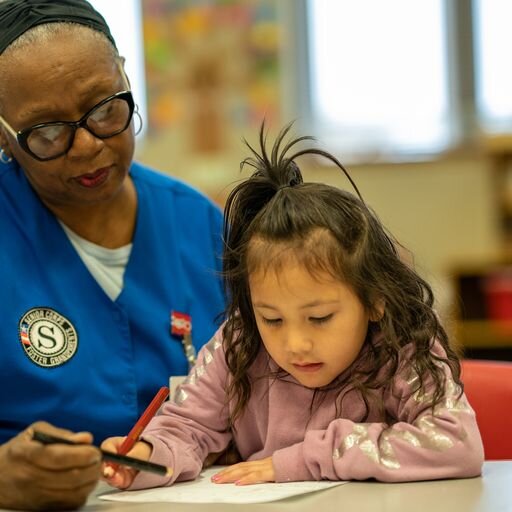
Each grandparent is assigned to one classroom for the school year. They get to work with the same group of children each day, which has many benefits for both the students and the grandparents, including stronger relationships with the kids and their teachers as well. They also get to spend time on focused goals for individual children.
“One of the best ways for kids to make progress is through relationships,” said Mary Lee Freeze, VP of Early Childhood Services at Brightpoint. “We’re all about developing relationships.”
While the grandparents help serve an entire classroom, they often work with a handful of students one-on-one when they need additional support. A grandparent may spend up to 30 minutes per day working with one child. This could involve reading, helping with homework, or working on social and emotional skills.
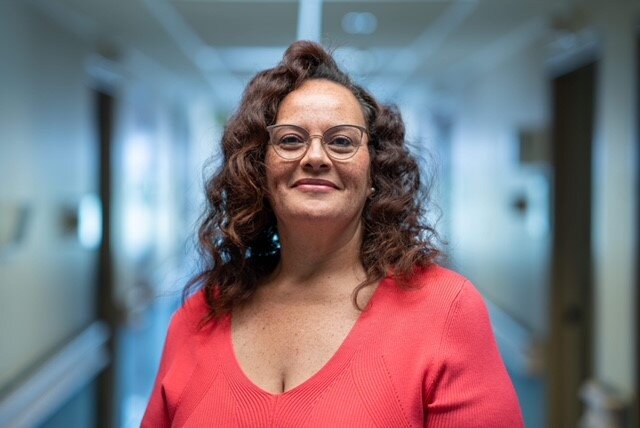
Danielle Lyons, the director of the Foster Grandparent Program in Fort Wayne, says that the foster grandparents work with many children who were affected by the COVID-19 pandemic, and many of them need extra support when it comes to interpersonal skills.
“Social and emotional skills, as well as reading, have been the biggest requests from our teachers,” Lyons says. “I think COVID took a lot of that away from our young people, and just giving them time to have a one-on-one conversation is really important.”
A recent study by 95 Percent Group shows that nearly one in three parents believe their child has been impacted by pandemic learning loss. Reading and English are among the top subjects that children struggle with — and the Foster Grandparents get to help support kids in those areas.
For many different reasons, some children in the program don’t have a grandparent in their lives outside of the classroom, or maybe don’t get to spend much time with them. As a stable and caring presence in the kids’ lives, the Foster Grandparents tend to take on a special role with the kids, becoming honorary grandparents in a sense while serving as role models and trusted leaders.
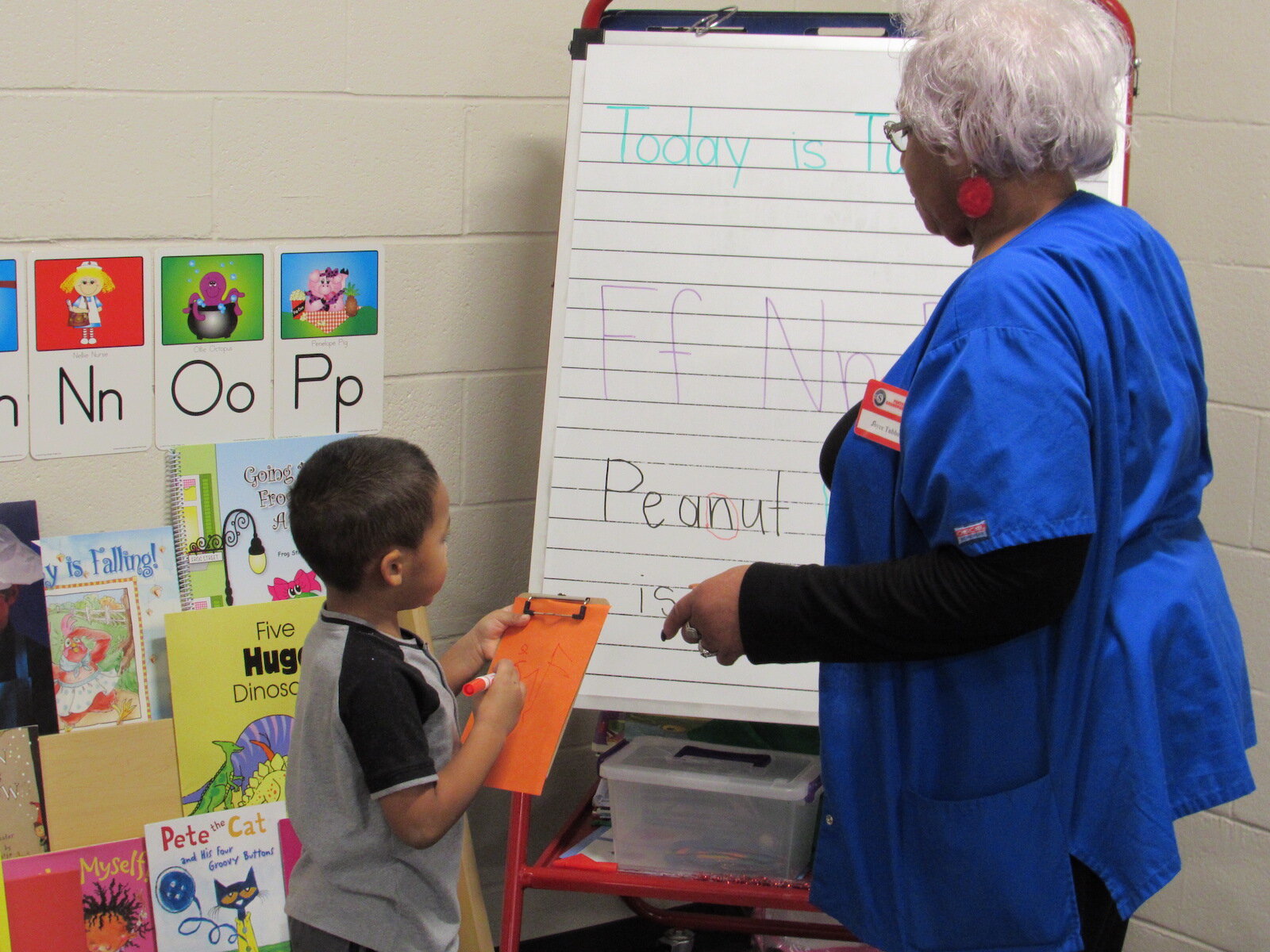
“The intergenerational connection between the children and these volunteers is something that a lot of families don’t have anymore, and it’s so needed,” Lyons says. “The children gravitate toward our grandparents. They look forward to seeing them in the classroom and spending time with them.”
Research from Stanford University supports what Lyons and Freeze are both passionate about — that intergenerational relationships have benefits for both young people and the elderly. Such connections can help kids get the attention and mentoring that they often lack, and the grandparents find purpose by connecting with kids and seeing the world through their perspective.
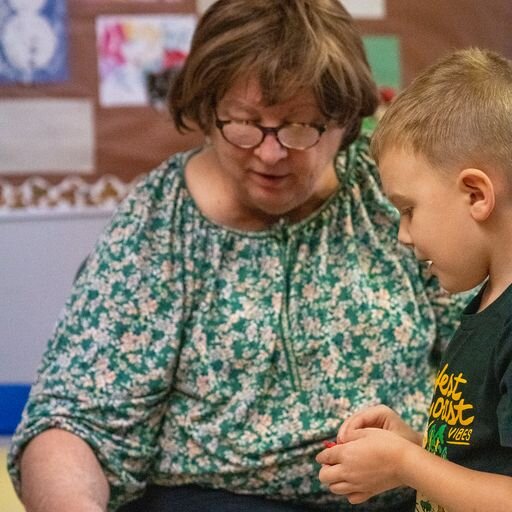
While many benefits stem from the relationships between grandparents and children, Freeze says the teachers also strongly value the grandparents who serve in their classrooms. Many times, the grandparents serve as an extra set of hands, which can be much needed in a room with a dozen or more preschoolers.
Some grandparents offer more specialized help. One grandparent works closely with students with special needs.
“She is amazing,” Lyons says. “She is legally blind but has not been her whole life. She’s worked with children in the past and that is her passion. We’ve connected with The League for the Blind and they’ve been helping us, so she is starting to work in special needs classrooms, specifically with children who are blind. I would love to have more grandparents of different abilities because that makes such an impact.”
While all the grandparents come from different backgrounds, they share a mutual desire to give back to their community, stay engaged and connected with others, and help children reach their full potential. The current group of volunteers includes people of many different abilities and ages, including one grandmother who is 90 years old.
Lyons says she gets to know each grandparent when they apply for the program.
“The majority of the time the grandparents say, ‘I just need to get out of the house and do something,’” she says. “A lot of them feel like they’re wasting their time just sitting at home. This program makes them feel like they have a purpose, something they get to work for every day. It gives them a reason to get out of bed.”
Volunteer grandparents can choose how much they want to work, and most are in classrooms for at least half the school day. Their hours range from about 15 to 30 per week. Depending on their income and other qualification factors, most grandparents also receive a stipend for the hours they work. Their transportation costs to and from school are covered as well.
“Our Foster Grandparents are ready to get up and do what needs to be done, and I think that says a lot about that generation,” Lyons says. “They have always been hard-working. They’re not going to stop. They’ll always do whatever it is they need to do to make our country a better place.”
Some grandparents also choose to work during the summer. For those interested in continuing to serve after the school year ends, Lyons helps connect them to sites with summer programs.
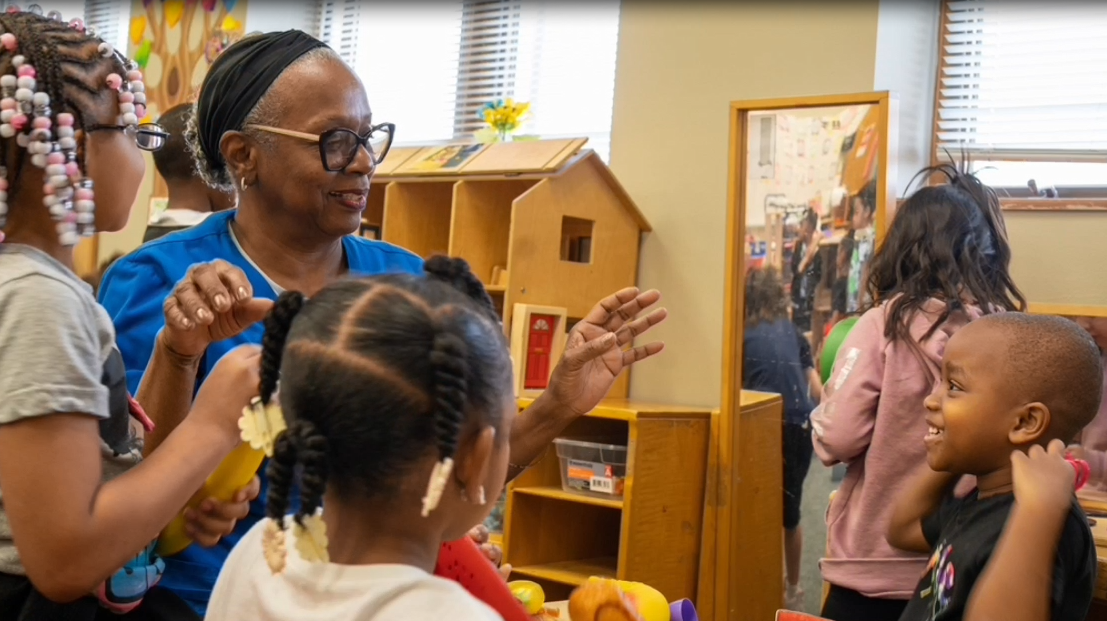
In the future, Lyons says she hopes to add more male volunteers to the group and more volunteers from different backgrounds.
“We have children in these schools who do not speak English,” Lyons explains. “I’d love to get more grandparents involved who can help our community’s Hispanic and Burmese children.”
Lyons and Freeze say they’re both passionate about the program and the profound impact it has on every person involved.
“It’s great for children to see older, positive role models each day,” Freeze says. “We appreciate having this program, it’s a huge benefit to the children.”
This story is made possible by Brightpoint.


